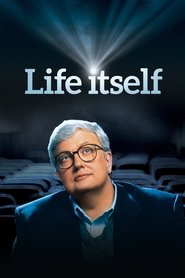I think someone should tell you that guy that the ending of The Great Gatsby has precisely the opposite intended message — i.e. it is the book's contention that the American Dream is a trap for Gatsby and America as a whole who, however tragic, are destined to repeat it again and again. Why they think that Gatsby is good analogy for Ebert's "rags-to-riches" story (itself a bizarre framing of his life) is beyond me.
Anyway, Life Itself is not exactly exploitative of Ebert's cancer, but it's in the very nature of rendering terminal illness on-screen that feels manipulative in its effective. (See also: the recent film about Michael J. Fox, Still). What's more, whilst, there are some candid moments, the film is so much in that "boy he could be a jerk, but..." mode of soft-pedalling that, however understandable, does not reveal anything particularly interesting or dangerous about him. Indeed, unlike Ebert's own book, the documentary glosses Ebert's problems with addiction; the film gets it out of the way early. It is curious how the music and montage shots of Rourke's bar romanticise those obviously painful times. Equally soft-pedalled are Ebert's often-eyebrow-raising views on race, and it is a little disarming to see Ava DuVernay claim that Ebert, by being married to a Black woman, is essentially "a brother".
What doesn't land well at all is the section that treats Ebert's obvious fetish for large breasts as a bit of a joke or part of him being a bit of a 'character', in addition to a quick reference to screening sessions he used to run called "Cinema Interruptus". This is all played for laughs, rather than potentially part of a much broader, enabling, pattern of problematic men in Hollywood. (Ebert's own book is borderline supportive of Woody Allen, dismissing claims that he was having an affair with his adopted daughter as "gossip", and "separating the art from the artist" in general.)
But both book and film elide a number of things about the Ebert story. Both texts are strangely silent on the topic of the American New Wave, the great period of US filmmaking that stretches from the late 1960s through to the early 1980s. Surely this at least had something to with the rise of Ebert's fame? It's not that any critic could not have risen to the top, and that Ebert couldn't write about these in a populist touch. He certainly could. But being around during the greatest period of US filmmaking to date surely has something to do with it as well. Reading the book, I kept waiting to reach his thoughts on watching masterpiece-over-masterpiece during the 1970s. Perhaps he didn't see them as masterpieces at the time. That would be interesting indeed.
Instead, the story seems to jump ahead to the 1980s and 1990s, and all sorts of functionally incomprehensible backstage drama where the stakes are whether X should go into syndication with ABC or cable or something.
Condescension toward Ebert as a populist compromiser is hip and widespread enough that James’s stance ultimately scans as optimistic and almost bravely pragmatic.The continual disjunctions between the soft heroic sell and the acknowledgements of professional opportunism keep the film thrumming along, but they also foster an impression that James is rushing and dutifully covering all his bases to evade accusations of creating a puff piece.
James, attempting to emulate Ebert’s broad reach as a writer by rendering his own film accessible, falls short and resorts to conventionally reporting widely known biographical facts, inadvertently highlighting the challenges of attaining the kind of accessibility that Ebert himself misleadingly appeared to effortlessly achieve.
— Chuck Bowen (Slant Magazine)
Synopsis: The surprising and entertaining life of renowned film critic and social commentator Roger Ebert (1942-2013): his early days as a freewheeling bachelor and Pulitzer Prize winner, his famously contentious partnership with Gene Siskel, his life-altering marriage, and his brave and transcendent battle with cancer.

